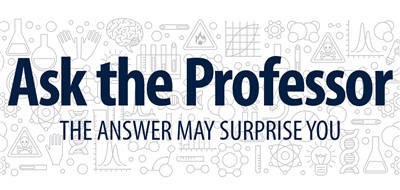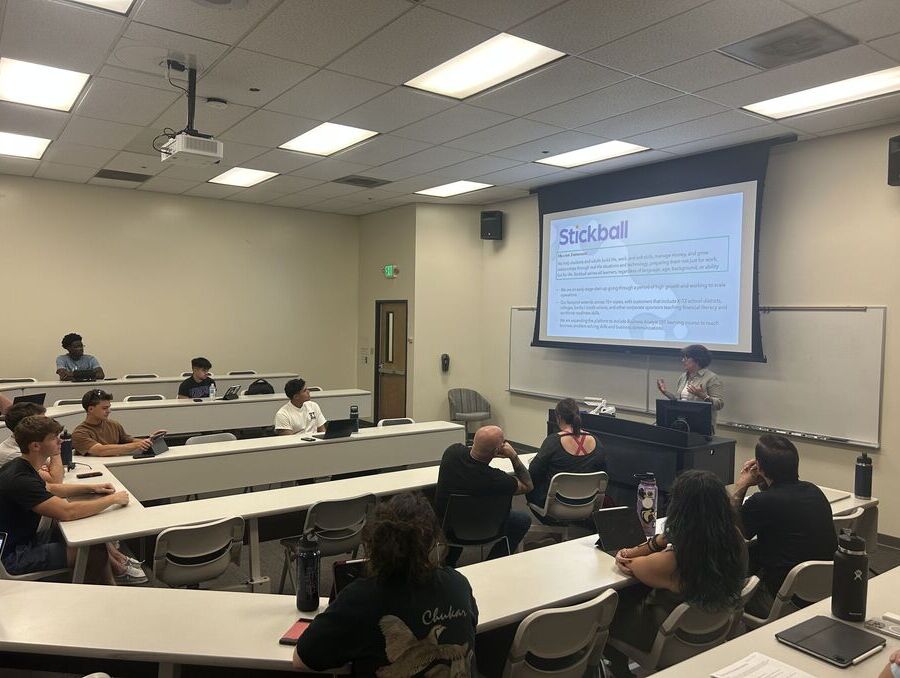Dan Jones, an associate professor in management who researches toxic personality traits and how it can lead to unethical behavior, answers questions about what makes a master manipulator and how to avoid them following his 2024 TEDx Reno talk on the same subject.
What is the dark triad?
The dark triad refers to three characteristic personality traits: psychopathy, narcissism and Machiavellianism.
Of the three, Jones believes that psychopathy is the most dangerous in a one-on-one situation, because it’s the most impulsive trait, meaning many actions are done without prior thought or consideration. However, in terms of global damage or societal harm, individuals high in Machiavellianism are more likely to build alliances and spread false information for selfish gain. Thus, their deception and betrayal often play out over time making the damage much deeper.
Psychopathy is genetic. According to Jones, it is possible that a psychopathic person with fewer advantages in life may choose to partake in street crime, while psychopaths with more advantages may gravitate towards corporate crime. However, they all seek immediate gratification for the things they want and the crimes they commit.
Narcissism is similar to both psychopathy and Machiavellianism, but narcissists’ behaviors come down to what it can do for their social status and are driven entirely by their egos. Their behaviors are focused on building a sense of superior identity. Based on their entitlement, they will lie, cheat, steal and carry out other immoral acts just as a Machiavellian or a psychopath would, but mostly when it can boost their status and identity.
Narcissists do rationalize their antisocial behavior, while rationalization does not even cross psychopaths’ minds during their thought processes.
Machiavellianism refers to manipulative individuals who draw information from others that they can strategically use later by getting closer to those people and creating a false sense of trust and safety. This trait will be discussed in greater depth later in the article.
Anyone who experiences high levels of Machiavellianism is more likely to choose a complicated, well-thought-out approach to their antisocial behavior. This decreases the risk of getting caught.
Jones estimates that roughly 8-10% of the population has a problematically high level of one of these traits.
What is Machiavellianism?
Although it may seem that Machiavellianism is a disorder, it is simply an everyday personality trait. The term originated from Richard Christie and Florence Geis who noticed that those who strongly agreed or disagreed with the writings of Niccolo Machiavelli, an Italian political advisor and author, had different ways of approaching the world. Machiavelli had some very strong beliefs about maintaining power, one of them being that rulers should go to any means necessary, even to the detriment of their people, to get what they want.
As originally conceptualized, the term has three main components: amorality, manipulative tactics, and cynical worldview. Thus, they disregard conventional morality and they dismiss humanity as full of liars and evil.
A Machiavellian is not likely to announce their intentions. Instead, they try to make you feel understood and comfortable. They might also make you feel like a confidant or close friend to them. What might seem like an equal exchange of information is cultivated by them but they won’t forget what is shared and will use it against you in the future. However, those high in Machiavellianism only manipulate when they have a high chance of success and a low risk of getting caught.
There is no fair fight in dealing with a Machiavellian because they are usually gathering information about people so they can use that information to get what they want. However, if the rewards of antisocial behavior are not great enough, the Machiavellian will often delay their antisocial plans, or opt for a new plan.
Machiavellians are said to be one of the biggest insider threats to others because they don’t act as soon as they get access to sensitive information. They will lay the groundwork and plan out what they want to do so they can maximize their impact and minimize their risk in the long run.
How can you recognize a master manipulator at work?
First, it is important to rule out all other (more benign) possibilities. For example, miscommunication, situational pressures or sensitive feelings. Clearly communicating your concerns through official channels is vital before jumping to the conclusion that the person you are dealing with has a dark triad trait is critical.
Second, it’s crucial to recognize that a master manipulator does not have to be in a position of power. They do not already need to have the title of a higher-up to have any of the dark triad traits. However, due to their techniques, they will often seek power and influence.
Look out for coalition building in the workplace. What may seem like an ally or a team player may actually be a person cultivating a reputation for later exploitation. Although they may be seen as a good and hard-working member of the team, they may use manipulation to increase their power or control.
Often leaders may turn a blind eye to the master manipulator’s antisocial behavior because they have first cultivated a good reputation with those leaders.
The first step to dealing with a master manipulator at work is to recognize one.
For more information, you can visit Jones’ research website or watch his TEDx Talk on YouTube.
About the professor
Dan Jones is an associate professor in management. His research focuses on recognizing and assessing dark triad traits. More recently, he has focused on helping those who are exposed to these traits and helping them find practical solutions for survival. Thus, he is now focused on helping people deal with these types of people when they cannot immediately find relief through official channels or by moving jobs. He encourages anyone who may be experiencing any issues with these kinds of people (especially in the workplace) to reach out to him or to visit Dan Jones' research website.

















